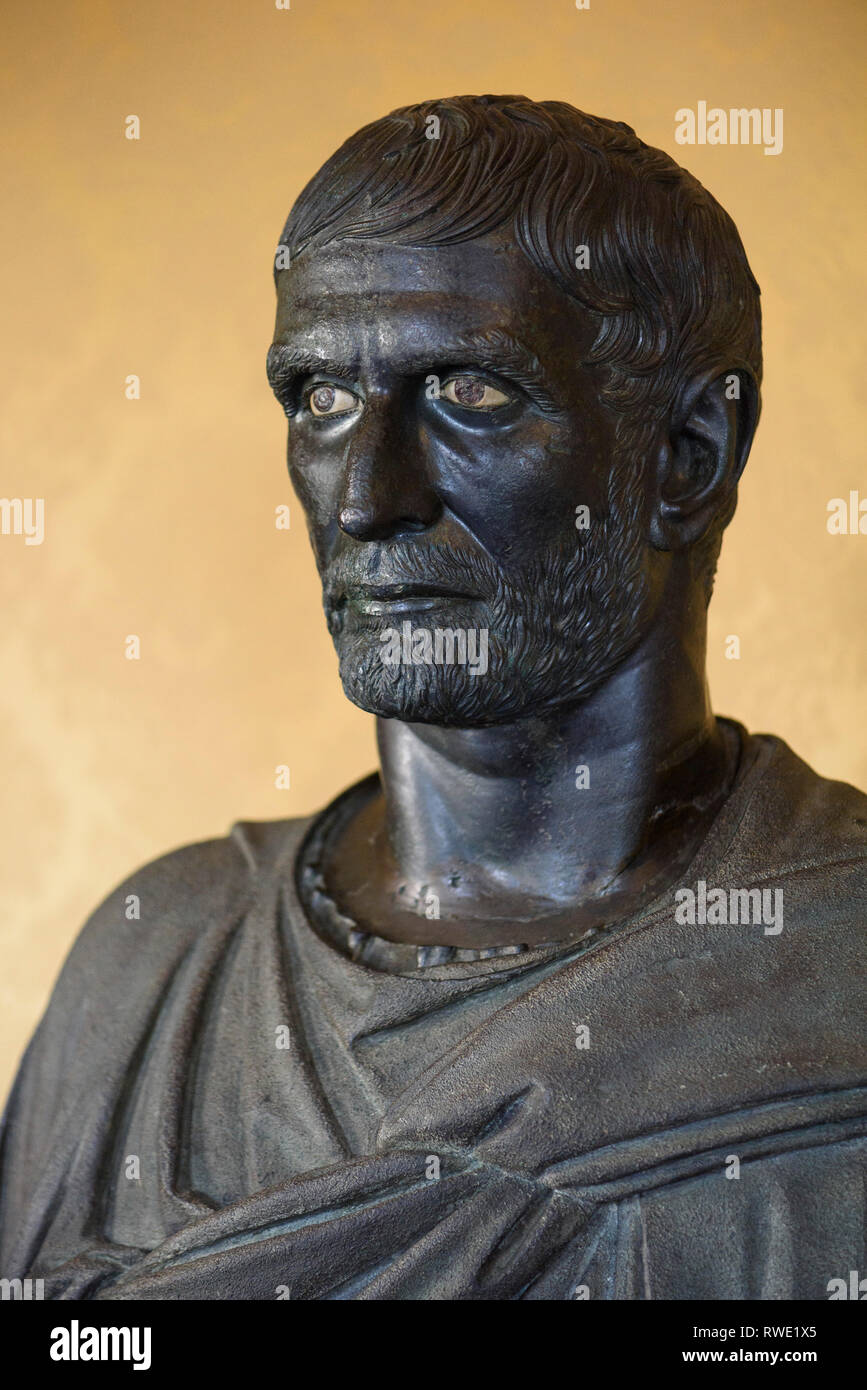
/GettyImages-567589271-59483a495f9b58d58af7c918.jpg)
In the opposite portrait Publicola is associated with Postumus without text reference to the latter. He became a great favorite with the people, receiving the surname Publicola (‘Honored by the People' or ‘Guardian of the People'). He secured the liberties of the people by several laws and ordered the lectors to lower the fasces before the people as an acknowledgement that their rights were superior to those of the consuls. Publicola took part in the expulsion of the Tarquins, and was thereupon elected consul with Brutus (509 BCE). These two Romans (referring to woodcut opposite) defeated the Sabines and were accorded a triumph but Valerius died poor. She foretold that out of eternity a miraculous birth would take place in this world through a virgin and that the iron people would come to an end and a golden people would spring up.

The Cumaean Sibyl (Sibylla Cumana), who lived in the time of Tarquinius Priscus, is clad in a dress of gold, and has a tall open book in her hand, and also a book in the left hand, resting on her knee. Collatinus was relieved of his office, for it was decided that the name of Tarquinius was to be banished from the city of Rome. Brutus caused them to be beaten with rods and then to be killed with an axe. Brutus had two sons who wanted to re-establish the kingship. The first two conducted a war against Porsena (Porsemia), king of the Etrurians. Of these we will here mention the foremost. In the 224th year after the building of the city of Rome, when the line of the Roman kings came to an end, the people appointed consuls in the place of kings, who were to govern for but one year so that in the passage of years they would not become too arrogant.


 0 kommentar(er)
0 kommentar(er)
